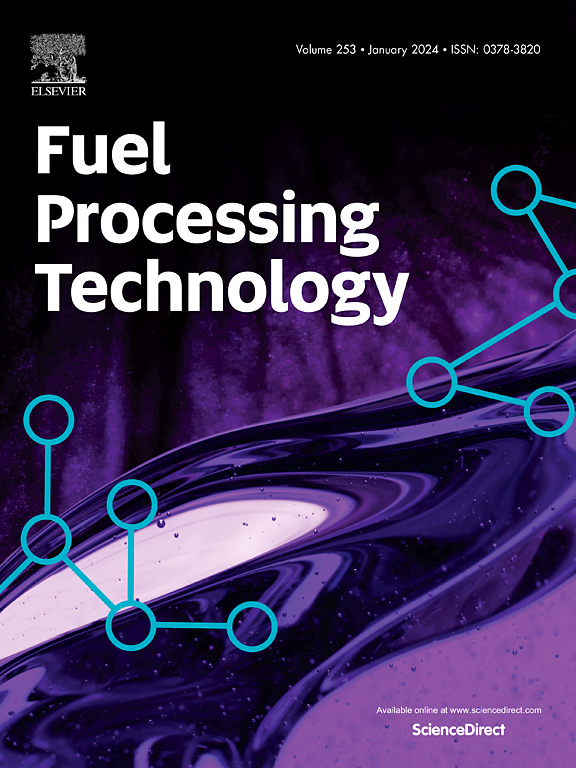Hollow carbon spheres as catalyst support for Fischer-Tropsch synthesis: synthesis techniques, optimization strategies, and future research
IF 7.7
2区 工程技术
Q1 CHEMISTRY, APPLIED
引用次数: 0
Abstract
The potential of hollow carbon spheres (HCS) as catalyst supports, particularly in the Fischer-Tropsch synthesis (FTS) process, is examined in this review. These materials are presently attracting great attention due to their unique properties such as encapsulation ability, controllable permeability, surface functionality, high surface-to-volume ratios, and excellent chemical and thermal stabilities. FTS is a pivotal technology for converting carbon monoxide and hydrogen into synthetic fuels and chemicals, but it requires the creation of effective catalyst supports. This review describes the structural benefits and chemical stability of HCS by looking at a wide range of research, emphasizing its effectiveness in comparison to conventional catalyst supports. A critical analysis of the synthesis techniques, optimization plans, and future research avenues sheds light on how HCS can improve catalytic effectiveness and reaction results in FTS. The primary objective of this effort is to stimulate additional research and development in catalyst support materials, paving a path for more sustainable and economically viable processes in the energy sector.

作为费托合成催化剂载体的中空碳球:合成技术、优化策略及未来研究
本文综述了空心碳球(HCS)作为催化剂载体的潜力,特别是在费托合成(FTS)过程中。这些材料由于其独特的性能,如封装能力、可控性、表面功能性、高表面体积比以及优异的化学和热稳定性,目前备受关注。FTS是将一氧化碳和氢气转化为合成燃料和化学品的关键技术,但它需要创造有效的催化剂支撑。本文综述了HCS的结构优势和化学稳定性,并着重介绍了其与传统催化剂载体相比的有效性。对合成技术、优化计划和未来研究途径的批判性分析揭示了HCS如何提高催化效率和FTS反应结果。这项工作的主要目标是促进催化剂支持材料的进一步研究和开发,为能源部门更可持续和经济上可行的工艺铺平道路。
本文章由计算机程序翻译,如有差异,请以英文原文为准。
求助全文
约1分钟内获得全文
求助全文
来源期刊

Fuel Processing Technology
工程技术-工程:化工
CiteScore
13.20
自引率
9.30%
发文量
398
审稿时长
26 days
期刊介绍:
Fuel Processing Technology (FPT) deals with the scientific and technological aspects of converting fossil and renewable resources to clean fuels, value-added chemicals, fuel-related advanced carbon materials and by-products. In addition to the traditional non-nuclear fossil fuels, biomass and wastes, papers on the integration of renewables such as solar and wind energy and energy storage into the fuel processing processes, as well as papers on the production and conversion of non-carbon-containing fuels such as hydrogen and ammonia, are also welcome. While chemical conversion is emphasized, papers on advanced physical conversion processes are also considered for publication in FPT. Papers on the fundamental aspects of fuel structure and properties will also be considered.
 求助内容:
求助内容: 应助结果提醒方式:
应助结果提醒方式:


